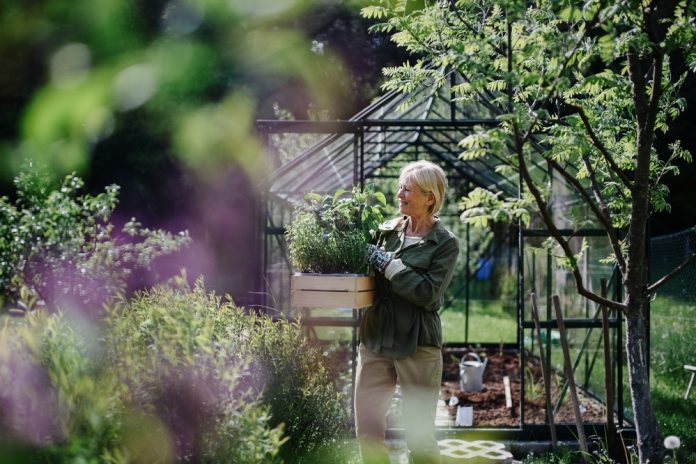As we age, it becomes increasingly important to take care of our cognitive health. While there are many activities and exercises that can help boost our brainpower, one of the most enjoyable and beneficial ways to do so is spending time in the garden. Gardening not only provides physical activity, but it also has numerous mental benefits for seniors. In fact, research has shown that gardening can improve cognitive function and overall well-being in older adults. So, if you’re looking for a new hobby that will keep your mind sharp, look no further than your own backyard.
One of the main ways gardening benefits cognitive health is through physical activity. Gardening involves various movements such as bending, stretching, and lifting, which can help strengthen muscles and improve flexibility. This is especially important for seniors, as maintaining a healthy level of physical activity can help prevent the onset of age-related illnesses and conditions. Additionally, gardening can be a low-impact form of exercise, making it accessible for seniors with different levels of physical ability.
But the benefits of gardening go beyond just physical activity. It also provides mental stimulation, which is crucial for maintaining cognitive health. The act of gardening requires planning, problem-solving, and decision-making, all of which can help keep the brain active and engaged. For example, deciding which plants to grow, how to arrange them in the garden, and how to care for them all require critical thinking skills. This mental stimulation can help improve memory, attention, and overall cognitive function.
In addition, gardening allows seniors to connect with nature, which has been proven to have a positive impact on mental health. Spending time in a green environment has been linked to reduced stress, anxiety, and depression. It can also help improve mood and increase feelings of well-being. This is particularly important for seniors, as they may be more susceptible to mental health issues due to factors such as social isolation and health concerns. Gardening can provide a sense of purpose and accomplishment, which can help boost self-esteem and promote a more positive outlook on life.
Another way gardening can benefit seniors’ cognitive health is through exposure to sunlight. Sunlight is a natural source of vitamin D, which is essential for maintaining healthy bones and muscles. But it also has a significant impact on mental health. Sunlight triggers the release of serotonin, a hormone that helps regulate mood and promote feelings of happiness and well-being. As we age, our bodies may become less efficient at producing vitamin D, so spending time in the garden can help ensure we are getting enough of this vital nutrient.
Moreover, gardening can also provide a sense of community and social interaction for seniors. Joining a community garden or gardening club can provide opportunities to connect with others who share a common interest. This can help combat feelings of loneliness and isolation, which can have a negative impact on cognitive health. Gardening with others can also encourage seniors to learn from each other, share tips and tricks, and build meaningful relationships.
Furthermore, gardening can be a therapeutic activity for seniors with cognitive impairments. For those with conditions such as Alzheimer’s or dementia, gardening can provide a sense of calm and purpose. It can also serve as a form of reminiscence therapy, as familiar scents and activities can help trigger memories and stimulate the mind. Gardening can also help improve fine motor skills and hand-eye coordination, which can deteriorate with age or certain health conditions.
In conclusion, spending time in the garden can have numerous benefits for seniors’ cognitive health. From physical activity to mental stimulation, connecting with nature, and promoting social interaction, gardening can be a powerful tool for maintaining cognitive function and overall well-being. So, if you’re a senior looking for a new hobby that will keep your mind sharp and spirits high, consider picking up a shovel and getting your hands dirty. Your brain and body will thank you for it.








